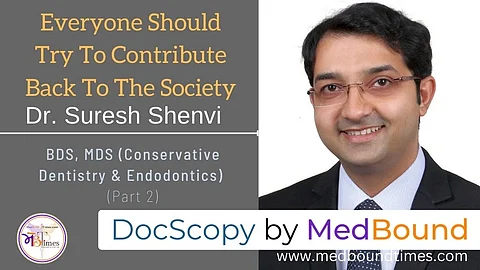Dr. Anjali Singh: I think the graph has shifted somewhat in the past few years because, earlier in the day, people visited dentists only for symptomatic treatment.
Dr. Anjali Singh: But now, especially in urban areas, people have become conscious of the aesthetics of their teeth, their smiles, and even the dental health of their children, which I don't think was given much importance back in the day.
Dr. Suresh Shenvi: Urban areas have seen the greatest change, but rural areas still have a long way to go. According to what I've learned from my experience providing my service to rural areas for the past 10 years, while money was a constraint earlier, awareness is now spreading gradually and steadily, especially in rural locations. We are grateful to dental professionals for spreading awareness and offering their services in remote places.
Dr. Anjali Singh: Sir, tell us some interesting career-related cases or an unforgettable situation that left an impression on you.
Dr. Suresh Shenvi: My lecturers were among the many persons who condemned me throughout my life. And that disappointed me greatly and made me both sad and angry. They unwittingly influenced my life, but in the end, it was for the best. This is what life is all about—meeting people who make an impression or impart some valuable lessons to us.
Dr. Anjali Singh: Sir, speaking of lessons and professors, as you are a professor yourself, how would you describe yourself as a mentor?
Dr. Suresh Shenvi: I am a mentor who is open and honest with my charges. I prefer to be direct and honest rather than diplomatic, but at the same time, one also needs to be mindful of the situation. One must be able to assess the situation as a mentor in order to act appropriately. It's crucial to encourage kids to ask questions, and one recent change I've made to my teaching strategies is to do so by provoking them to think critically rather than just going with the flow and letting them take things as they come.


